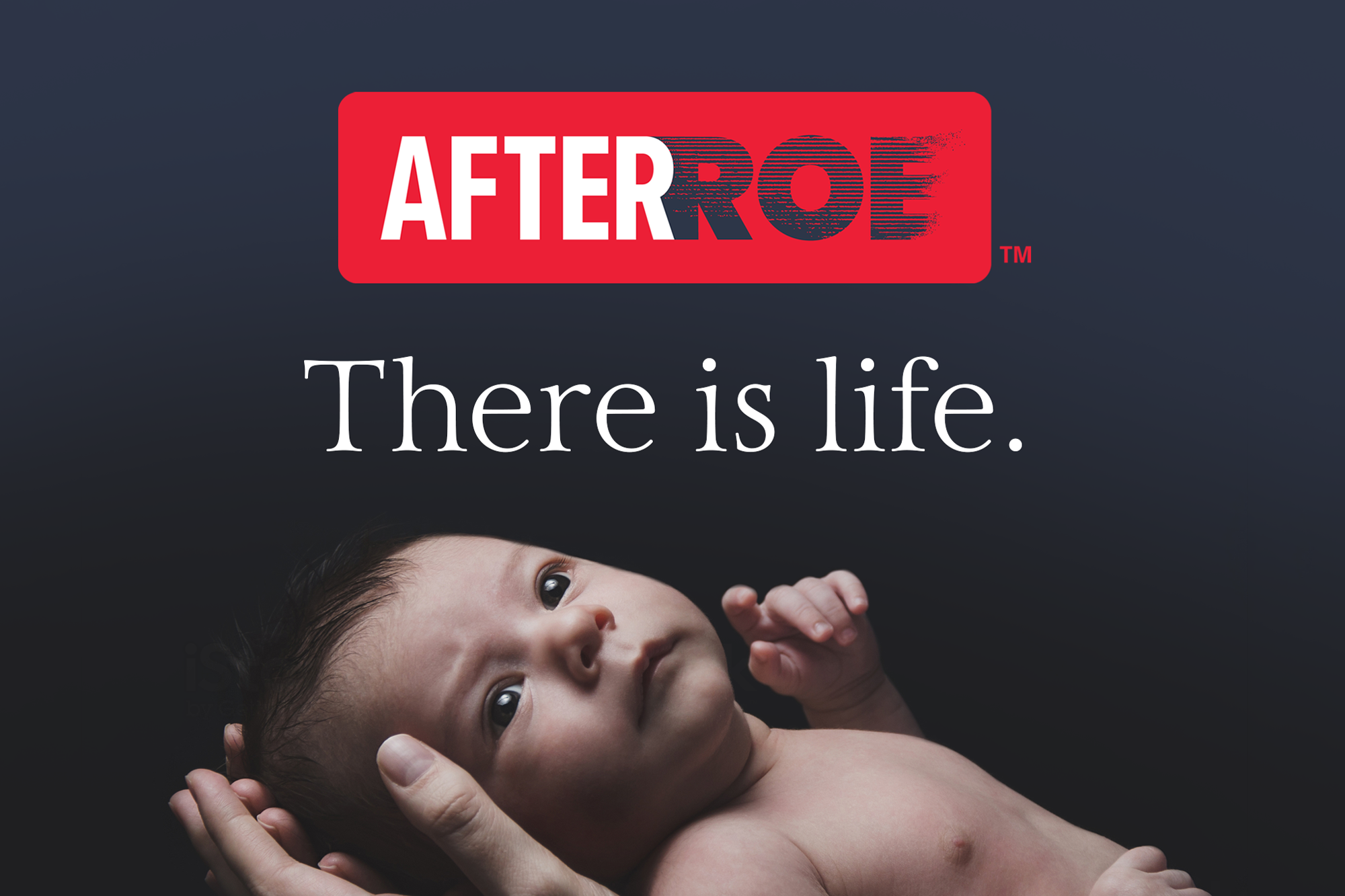
Dear Friend,
This week, we experienced a political earthquake. The leaked decision revealed a Supreme Court intent on overturning Roe v. Wade. And the Left came unhinged.
In the process, we got two sneak peeks:
- What the eventual Dobbs decision might look like: The draft was clear, bold and unequivocal in overturning Roe.
- What the Left will do when Roe is overturned: Anything!
And that’s where my urgent concern arises. So far, Planned Parenthood and their allies are simply better equipped for that battle. That’s because the abortion industry is raising money like it never has before!
One Big Tech titan just poured $275 million into Planned Parenthood and their state affiliates. That’s on top of $3.4 billion in annual cashflow for nearly 200 pro-abortion groups around the country.
Abortion groups are about to go hog wild with that money for three things:
- Key state election battles – to get their abortion supporters in office in this crucial, upcoming election
- Ballot measures in pro-life states – to upend pro-life laws that are set to go into effect if and when Roe is overturned
- Bad legislation – to lock down abortion protections in blue and purple states
Yes, the battle is headed to the states. And for 18 years – since we started as Focus on the Family Action – the states have been our prime focus. Electing state leaders. Training state legislators. And serving an alliance of 40 state allied groups.
Critical needs are already taking shape. An allied state leader just told us that they are gearing up for a generational fight, with the abortion industry likely to file a ballot measure on the heels of a Supreme Court decision that lets states decide.
That state illustrates what’s at stake: Within six months, virtually all babies there could be protected OR abortion could be enshrined in the state constitution!
That leads me to an urgent request. Family Policy Alliance needs your financial support for the state-by-state battles ahead.
We don’t need to match every Planned Parenthood dollar. After all, we have the Truth on our side. But we must be competitive! And by joining with thousands of others – each giving something of significance – you will stand toe-to-toe with Planned Parenthood in the most critical battles, state-by-state.
The support of friends like you has helped Family Policy Alliance prepare for this moment for a long time:
- Hosting and serving an alliance of nearly 40 state groups that are deeply engaged in pro-life efforts, state-by-state
- Winning elections – with your help, we don’t just talk about issues, we get in the fray
- Launching AfterRoe.com, a state-by-state guide that maps out where states are and what they need to do to protect life
If you’ve been a part of making that possible, thank you for laying the foundation.
Now, will you equip the pro-life team for winning action? Please join this effort today with your best gift to stand against the onslaught from Planned Parenthood and their pro-abortion allies!
It’s the moment we’ve been waiting for. With God’s help, let’s go win!
For Life,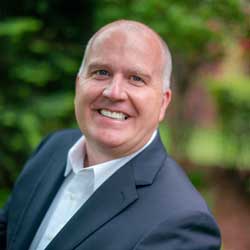

Craig DeRoche
President & CEO
P.S. I need you to go big today! We finally have a chance to fully protect life. Your gift, now more than ever, will go to the front lines to save little lives, state by state.
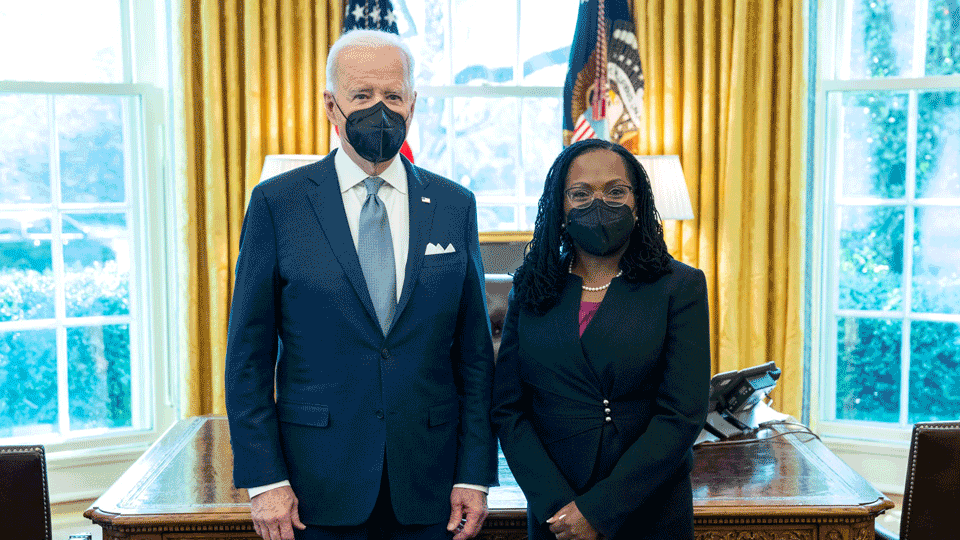
Recently, Congress passed the large omnibus spending bill.
- The Good News: Pro-life Hyde protections remain in important federal spending provisions.
- The Bad News: Harmful provisions under the Violence Against Women Act remained.
Speaking of women, a current U.S. Supreme Court nominee is having a hard time defining what a woman is.
This week, the Senate Judiciary Committee held hearings for the nomination of Judge Ketanji Brown Jackson to be an Associate Justice of the United States Supreme Court. Judge Jackson certainly holds high credentials. However, her answers during the nomination hearings raise concerns on how she will rule as a Justice of the nation’s highest Court. Here are some notable exchanges and information related to this week’s nomination hearings:
What is a woman?
“Can you provide the definition of the word, ‘woman’?” –Sen. Blackburn, TN
“I can’t. Not in this context. I’m not a biologist.” –Judge Jackson
“Do you agree with Justice Ginsburg that there are physical differences between men and women that are enduring?” –Sen. Blackburn, TN
“Senator, respectfully, I’m not familiar with that particular quote or case, so it’s hard for me to comment whether or not.” –Judge Jackson
Should life be protected?
“When does life begin, in your opinion?” –Sen. Kennedy, LA
“Senator, I don’t know.” –Judge Jackson
“Can an unborn child feel pain at 20 weeks in the birthing process?” –Sen. Graham, SC
“Senator, I don’t know.” –Judge Jackson
How should child pornography be punished?
Sen. Hawley (MO) raised multiple questions related to cases in which Judge Jackson provided lenient rulings on child pornography cases.
Sen. Hawley pointed out that in all child pornography cases in which she had discretion, Judge Jackson “sentenced below the guidelines and below the government’s recommendations.”
In one case, United States v. Hawkins, an 18-year-old uploaded 17 videos and 16 images of child pornography, including an 11-year-old committing a sexual act and being sexually assaulted by an adult male, as well as videos of multiple other minors videoed committing sexual acts.
The federal sentencing guidelines recommended 97 months, up to 10 years.
The “liberal” prosecutor asked for 2 years.
Judge Jackson issued a sentence of 3 months.
Judge Jackson’s response included that she “takes these cases very seriously” and that “sentencing is a discretionary act of a judge…on an individualized basis.”
Judge Jackson has previously argued in a paper at Harvard Law School that the judicial system is “unfair” to sexual predators and questioned whether they should even be imprisoned.
What is Marriage?
When Sen. Cornyn (TX) asked about the infamous Obergefell marriage case’s creation of conflict between religious beliefs and law:
Judge Jackson stated she would not be able to comment as these issues were making their way through the courts.
Note: When previously questioned on rights “not expressly enumerated in the Constitution,” Judge Jackson stated “Obergefell v. Hodges…affirms a constitutional right to marry.”
The nomination of a U.S. Supreme Court Justice reminds us of the impact nine lifetime appointments can have on each of our lives and the lives of future generations. Cases related to life, marriage, religious liberty, free speech, and more are decided by the individuals confirmed to the nation’s highest Court. It is truly a sobering moment, and a strong reminder that elections have consequences that will impact generations.
Our team will keep you updated as the nomination process continues.
For Family and Freedom,

Nicole Hudgens
Government Affairs

Dear Friends,
This week, Family Policy Alliance of New Mexico filed a Supreme Court brief in support of Coach Joseph Kennedy – because religious speech should not be singled-out for punishment in a free and diverse society.
Joe Kennedy coached football at the Bremerton School District in Washington State. At the end of each game, he would briefly pray, on his own, at the 50-yard line. Curious about what he was doing, a couple of students came to him and when they learned that he was praying, they asked if they could join. Kennedy responded, “It’s a free country, you can do what you want.” Without the coach’s prompting, more students joined in the post-game prayer and eventually students and coaches from other teams joined in as well.
Nearly half of the team had joined Coach Kennedy when the school suddenly told him that he could no longer pray publicly. Despite initially obeying the order, Kennedy believed it violated his freedoms of speech and religion and therefore, chose to return to his post-game prayer tradition – a decision that eventually cost him his job.
The school claimed that they needed to fire Coach Kennedy so that they would not be in violation of the Establishment Clause, a clause in the First Amendment that prohibits the government from “establishing” a religion. That’s the same clause twisted by the Supreme Court to rule that prayer in schools is “unconstitutional”.
The Supreme Court’s modern interpretation of the Establishment Clause has been based on the idea that religious pluralism requires neutrality. But in reality, the effect at schools like Bremerton School District has not been neutrality, but rather a singling out of only religious speech as the only speech worthy of punishment.
A school should not punish a coach for a brief prayer at the end of a football game. Our constitution does not require us to abandon our religious traditions, and the Establishment Clause does not require schools to fire a coach like Joe Kennedy. But if Coach Kennedy can be silenced, do any of us really have freedom?
We must do better! The brief that we have filed with the Supreme Court calls to question whether the Establishment Clause, created to protect our religious freedom from government involvement, trumps Coach Kennedy’s speech and religious rights to pray briefly at the 50-yard line.
Will you pray with us? Pray that the United States Supreme Court will recognize the encroachment of freedoms of both religion and speech in this case. Pray that their decision will honor the freedoms that our Founding Fathers established and that so many have given their lives to protect. Pray that religious speech will no longer be singled-out as the only speech worthy of punishment.
Standing Firm,

Jodi Hendricks
Executive Director
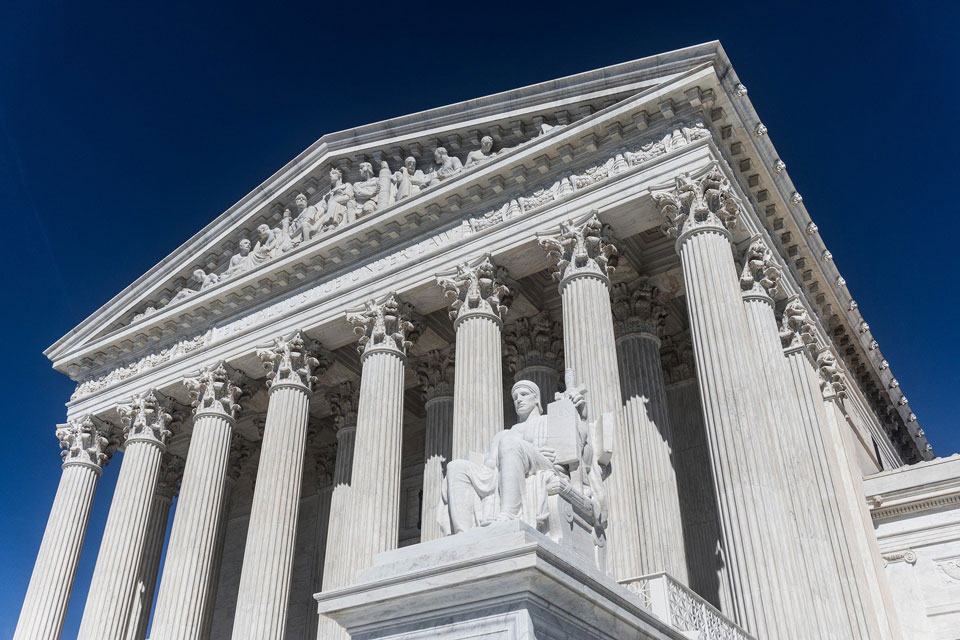
Dear Friends,
Despite our nation’s focus on Russia’s ongoing invasion of Ukraine, today will be a significant day for U.S. policy and jurisprudence as well. This afternoon, President Biden announced Judge Ketanji Brown Jackson as his U.S. Supreme Court nominee to replace Justice Stephen Breyer.
If confirmed, Judge Jackson’s decisions will significantly impact life, families, and religious freedom in our country. The U.S. Supreme Court has recently ruled on key cases in each of these areas, and this trend will continue. As an associate justice, Judge Jackson would likely sit on the bench for an important religious freedom case the Court has already agreed to hear in the next term – and a lifetime of a cases on other key constitutional issues that impact everyday life for American families.
Judge Jackson has a background as a policy attorney who was confirmed to the U.S. Circuit Court of Appeals for D.C. just last year. She has written very few opinions for that court, but unfortunately her record is one of opposing protections for unborn life and religious freedom.
Family Policy Alliance will be closely watching the confirmation process and seeking to understand how Judge Jackson would handle these critical issues.
We will keep you updated on the confirmation process as we assess how a potential Justice Jackson will impact families across America.
Sincerely,

Joseph Kohm III
Director, Public Policy
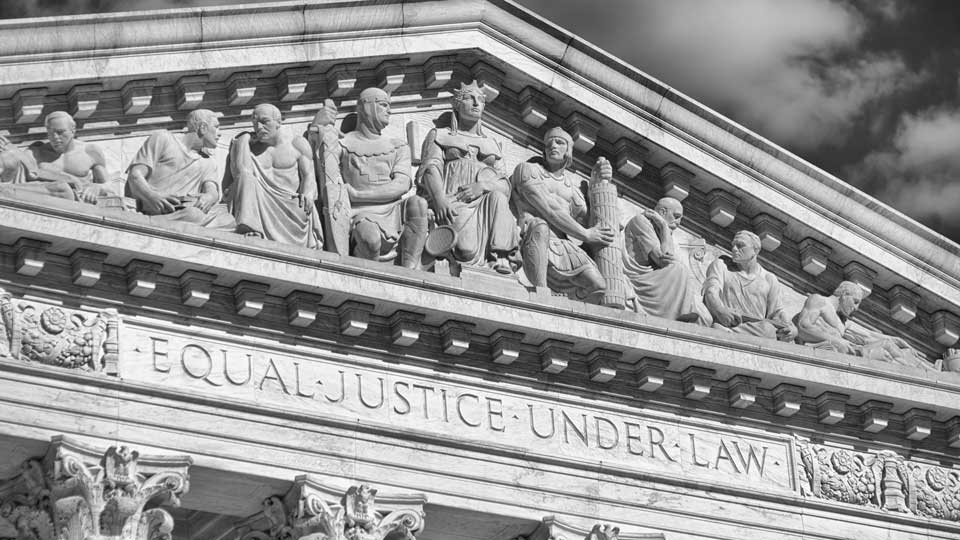
Dear Friend,
On Monday, Family Policy Alliance and 29 of our state allied organizations filed an amicus (friend of the court) brief with the U.S. Supreme Court on a critical religious freedom case.
Just before the holidays, you may have heard that the U.S. Supreme Court agreed to hold an emergency hearing on the consolidated case against the Biden Administration’s vaccine mandate, which is being imposed on employers with more than 100 employees via the Occupational Safety and Health Administration (OSHA).
Working quickly, our alliance’s legal team – led in this case by our allied organization in Texas – put together a powerful brief for the nine justices, who will hear the case on Friday. Here is our message to them:
- The brief articulates the centrality and importance of religious freedom in the United States – and highlights the many challenges this mandate would impose on employers and employees alike.
- The brief points out that this mandate puts employers in the difficult position of determining which employees’ beliefs are authentic and which are not – which is especially challenging in a secular workplace, but also presents challenges for faith-based ministries. The mandate would essentially turn employers into enforcers of a dictatorial, overreaching federal requirement.
- The brief also recounts the history of overreach of the “administrative state” – in this case, OSHA – especially when it comes to disregard for religious liberty. The brief argues that this issue ought to be debated and worked out in Congress or the state legislatures, where religious convictions have historically been given much more respect.
Family Policy Alliance remains deeply committed to advocating for your God-given religious liberty and for settling these issues through the legislative process – just as our Founding Fathers intended. And we are thankful for you and your support that makes possible our advocacy before the highest court in the land.
Standing for the family of believers, 

Joseph Kohm, III, Esq.
Director, Public Policy
© 2022 Family Policy Alliance. All Rights Reserved.
Originally Published 1/5/22 at familypolicyalliance.com.
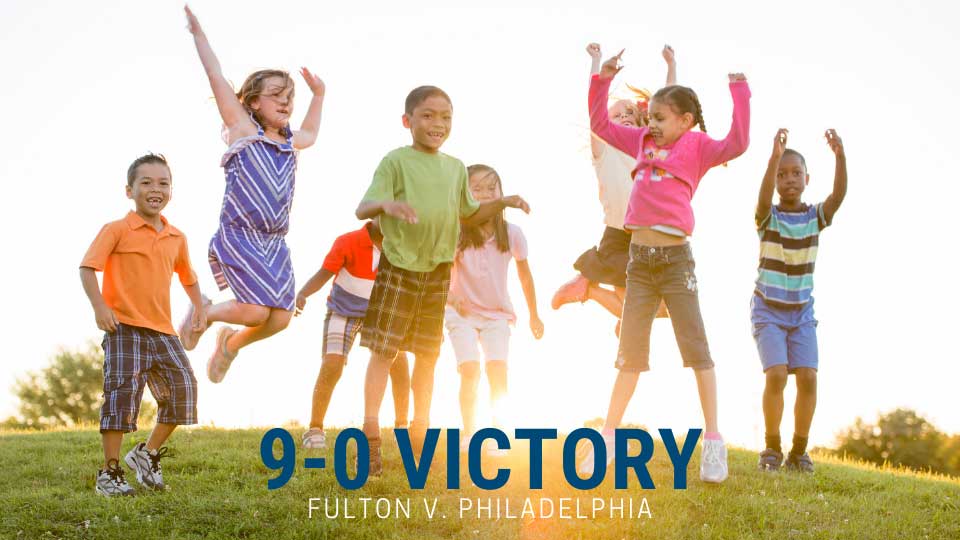
It’s not often that we hear of government bodies agreeing on a decision. But yesterday, the U.S. Supreme Court issued a UNANIMOUS judgement in favor of children and religious freedom.
What happened? Here are the facts.
The case: Fulton v. City of Philadelphia
Catholic Social Services (CSS) is a longstanding faith-based nonprofit that serves the foster children of Philadelphia. They exist to help children in need, particularly hard-to-place children, find forever homes. They have many guidelines for the families who are receiving children in their homes – including that there be a married mom and dad in the home.
Their beliefs are essential to their identity and cannot be separated from their work. But the city of Philadelphia thought otherwise.
When the city discovered CSS’s beliefs about marriage, they forced the organization to make a decision: change your beliefs, or the city will stop contracting with you.
CSS chose a third option: seek legal help.
The organization rightly recognized that this was a violation of their constitutionally protected religious freedom, and – represented by our friends at Becket Law – they took that argument to court.
After years of litigation, Catholic Social Services ultimately got their day in court before the U.S. Supreme Court last year. And today, the Justices issued their verdict: Philadelphia violated CSS’s religious freedom.
The implications: good news for children and religious freedom
This decision is good news not only for CSS, but for the many children they serve. When CSS is allowed to participate in Philadelphia’s foster care system, it not only offers a distinctly Christian option, but also increases the sheer number of foster providers – and that matters greatly.
In the U.S., more than 400,000 children in the foster system are waiting for homes. Around 4% of children are adopted within a year of entering foster care, and 85% of children in foster care have at least two placements in their first 12 months. In fact, the foster crisis is so extreme that some states are hosting foster children in hotels and office buildings because there is nowhere else to place them.
Today’s decision is a strong affirmation that foster homes like Catholic Social Services should be able to place children in loving homes while abiding by their religious convictions. Religious freedom is a precious gift afforded to all Americans. The belief that children should be in homes with a married mother and father should not be punished — and the Court affirmed that today.
The decision also reminds us of why the federal Equality Act – which could be up for a vote anytime in the Senate – is unworkable and inadvisable. The Act would redefine “sex” to include a person’s self-declared “sexual orientation and gender identity” throughout federal civil rights law. By doing that, the Act could be used to force foster and adoption agencies into similar dilemmas to Catholic Social Services – something that that the entire Supreme Court rejected today. The Equality Act would threaten religious freedom and the wellbeing of children and must be rejected.
We applaud today’s Supreme Court decision and are thankful for the work of Becket Law representing Catholic Social Services!
Joyfully,

Meridian Baldacci
Policy and Communications Strategist
P.S. Want to speak out against the Equality Act? Send a message to your Senator now.
